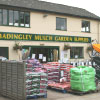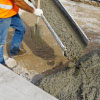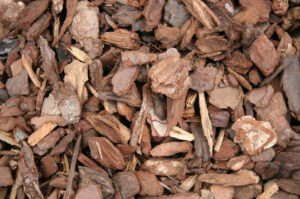Top Tips on Alternatives to Peat-Based Compost
Amateur gardeners won’t be able to use any peat-based compost after 2024. Although it can help plants to flourish in poor growing conditions, the Government has decided that all domestic sales in the UK should be banned after that date.
Madingley Mulch are leading bark mulch suppliers in Hertfordshire, Essex, Suffolk and our home county of Cambridgeshire. Here we examine the reasons for the decision, and why many of our products are ideal if you want to switch to a different soil improver ahead of the ban.
The Reasons for the Ban
Peat is partially decomposed plant material and is one of the planet’s most effective storers of carbon. Whenever it is extracted from its natural habitat – most of the UK’s peatlands are in Scotland – then the carbon is released. This combines with oxygen in the atmosphere and is released as carbon dioxide.
The Government wants the UK to be ‘net zero’ when it comes to carbon emissions by the year 2050. Given that bagged compost accounts for 70% of all peat-based product sales in the UK, it was a natural target for a ban.
Peat extraction also damages the natural habitats of several different species (less than 15% of the UK’s peatlands are still in a natural or near-natural state). Hen harriers, skylarks, red grouse, meadow pipits and many other birds are all native to peatlands; in all cases their numbers are in decline. Extraction also negatively impacts the peat’s ability to prevent flooding and filter water.
Environment Minister Richard Benyon said, when announcing the ban: “This Government understands the importance of keeping peat healthy and in the ground, here and around the world – to lock up carbon, strengthen drought resilience and serve as a powerful nature-based solution to climate change.”
“The actions announced today mark a new chapter in the story of our iconic peatlands – safeguarding their long-term health and vitality as part of our commitments to achieve Net Zero and deliver our 25-Year Environment Plan.”
Peat Substitutes
So, what can gardeners use instead of peat? Here are a few suggestions.
Compost – Many composts don’t contain any peat at all and can still effectively store and release nutrients and water. Alternatively, you can grow your own compost.
Mulches – These can be effective as weed suppressants and help plants retain moisture. We stock a range of mulches, including decorative mulch which can also be used in play areas as well as in flower beds.
Bark and Wood-Based Products – The Royal Horticultural Society (RHS) says that bark and wood products (as pictured above), such as chips and shavings, will also improve the soil without doing any damage to the environment; both are renewable materials. At Madingley Mulch, we stock a wide range of bark and woodchip products – for more details, click on this link.
Other Soil Conditioners and Improvers – Well-rotted animal manures are also a good way of improving soil, says the RHS. This is one of the key ingredients of Denise’s Delight, which is available exclusively from us. It also contains Fen soil, humus and other plant nutrients. It’s ideal for use in raised beds.
Tony’s Tonic, which is another of our exclusive products, also contains well-rotted horse manure. It can be spread over the soil or dug in and makes an excellent mulch, even in the winter months.
Madingley Mulch – Bark Mulch Suppliers in Hertfordshire
We don’t just stock soil improvers and conditioners – you can also buy tools, decorative stones and pebbles, paving slabs and many other garden products at our base on the outskirts of Cambridge. Our full range can be found here and can also be ordered online.
If you wish to place a large order, we offer a free delivery service within 15 miles of our nursery. A standard £20 delivery charge applies up to a radius of 25 miles, regardless of how many bags you order. If you need a delivery beyond this area, please call us on 01954 212144 for a quote.
Back to blog




